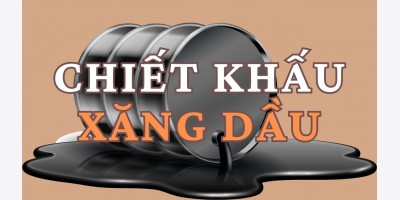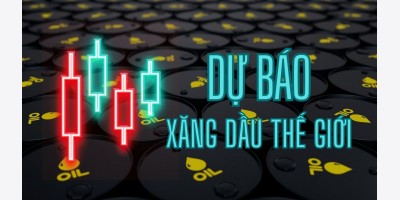Giá dầu thô phiên châu Á tăng nhẹ
Các cuá»™c oanh kích bằng không quân của quân đồng minh Anh-Pháp –Mỹ vào Libya càng khiến các nhà đầu tÆ° lo ngại hÆ¡n vá» sá»± gián Ä‘oạn nguồn cung có thể sẽ kéo dài ở nhà sản xuất dầu đứng thứ ba châu Phi.
Cuá»™c chiến dÆ°á»ng nhÆ° không có Ä‘Æ°á»ng lui, phe nổi dáºy và lá»±c lượng quân Ä‘á»™i của tổng thống Muammar Qaddafi Ä‘ã tạm gác lại mâu thuẫn để bắt tay nhau chống lại quân đồng minh. Trong khi Ä‘ó tại Trung Äông, tình trạng bất ổn ở Yemen leo thang sau khi hàng nghìn ngÆ°á»i biểu tình qua Ä‘êm trên các Ä‘Æ°á»ng phố nhằm gây sức ép vá»›i tổng thống Ali Abdullah Saleh.
Ben Westmore, nhà kinh tế và khoáng sản của Ngân hàng National Australia Bank Ltd ở Melbourne nói: “Căng thẳng gia tăng cá»±c Ä‘á»™, mà hầu nhÆ° vẫn xoay quanh các cuá»™c biểu tình ở Yemen, xung Ä‘á»™t ở Libya, Ä‘á»™ng đất ở Nháºt và bất ổn ở Trung Äông”.
Vào lúc 8h35 sáng nay (giá» Việt Nam), giá dầu thô WTI giao kỳ hạn tháng 05 Ä‘ang giao dịch ở mức 102,50 USD/thùng, tăng 1,22 USD so vá»›i Ä‘óng cá»a phiên Mỹ tối qua.
Còn giá dầu thô Brent giao kỳ hạn tháng 05 Ä‘óng cá»a phiên giao dịch hôm qua chốt ở mức 114,96 USD/thùng, tăng 1,03 USD so vá»›i ngày trÆ°á»›c Ä‘ó.
Các chuyên gia phân tích của Ngân hàng Goldman tại New York, đứng đầu là David Greely nói, cuá»™c khủng hoảng chính trị ở Tunisia, Ai Cáºp Ä‘ang có tác Ä‘á»™ng dây chuyá»n đến các nÆ°á»›c nhÆ° Yemen, Bahrain và Syria, đẩy giá dầu thô tăng 10 USD và khả năng sẽ còn tăng nữa.
Còn vá» Ä‘á»™ng đất tồi tệ của Nháºt gần Ä‘ây, Giám đốc Ä‘iá»u hành của Templeton Asset Management’s Emerging Markets Group ở California nói Ä‘ó nhÆ° là má»™t cÆ¡ há»™i để các nhà đầu tÆ° mua vào, bởi Nháºt sẽ cần đến má»™t lượng hàng hóa lá»›n để phục vụ cho công cuá»™c tái thiết.
Oil Near One-Week High on Libya Military Strikes, Mideast Unrest
March 22 (Bloomberg) -- Oil traded near the highest in more than a week in New York as Allied airstrikes in Libya threatened to prolong a supply disruption from Africa’s third-largest crude producer.
Futures climbed as much as 2.3 percent yesterday after Libyan leader Muammar Qaddafi vowed to repel attacks. Airstrikes on the country and the threat of contagion in the Middle East creates an upside risk to prices, Goldman Sachs Group Inc. said. Unrest escalated in Yemen as thousands spent the night on streets to maintain pressure on President Ali Abdullah Saleh, who is facing a growing internal revolt.
“The continued upward pressure is revolving around the protests in Yemen and conflict in Libya,” said Ben Westmore, a minerals and energy economist at National Australia Bank Ltd. in Melbourne. “Japan and the Middle East continue to be the main focus of markets.”
Crude for April delivery traded at $102.47 a barrel, up 14 cents, in electronic trading on the New York Mercantile Exchange at 10:44 a.m. Sydney time. The contract, which expires today, rose $1.26, or 1.3 percent, to $102.33 yesterday, the highest settlement since March 10. The more-actively traded May futures gained 2 cents to $103.11.
Brent oil for May settlement climbed $1.03, or 0.9 percent, to end the session at $114.96 a barrel on the London-based ICE Futures Europe exchange yesterday.
Regional Unrest
Regional turmoil has toppled the leaders of Tunisia and Egypt and reached Yemen, Bahrain and Syria. Political unrest in North Africa and the Middle East is adding about $10 a barrel to the price of oil and may cause the commodity to rise further, Goldman analysts led by David Greely in New York wrote in a report yesterday.
Allied officials said two days of strikes have effectively grounded Qaddafi’s air force, halting advances into the rebel stronghold of Benghazi. The Libyan leader denounced the coalition allied against him, which includes the U.S., the U.K. and France, as “the party of Satan.”
Libyan output has fallen to fewer than 400,000 barrels a day, Shokri Ghanem, chairman of Libya’s National Oil Co., said on March 19. The country produced 1.59 million barrels a day in January, according to estimates compiled by Bloomberg. Exports may be halted for “many months” because of sanctions and damage to facilities, the International Energy Agency said.
Libyan oil production is likely to remain disrupted for the rest of this year, said Lawrence Eagles, head of commodities research at JPMorgan Chase & Co. in New York.
State of Emergency
Bahrain’s government declared a three-month state of emergency on March 15 after troops from Saudi Arabia and other Arab Gulf states arrived to help in quelling more than a month of protests. Yemen’s President fired his cabinet on March 20 after the deadliest crackdown in two months of unrest led officials close to him to resign in protest.
Japan is delivering more relief supplies in areas hardest hit by the March 11 earthquake as workers restored power to two reactors at a crippled Fukushima Dai-Ichi nuclear power plant yesterday, prompting Prime Minister Naoto Kan to say there was “light at the end of the tunnel.”
The crisis in Japan is a buying opportunity for investors, Mark Mobius, San Mateo, California-based executive chairman of Templeton Asset Management’s Emerging Markets Group, said in an interview yesterday on Bloomberg Television’s “In the Loop” program. Global commodity demand will probably rise as the nation rebuilds, he said.
Japan was responsible for 5.2 percent of global oil demand in 2009, according to BP Plc, which publishes its Statistical Review of World Energy each June. Japan is the third-biggest crude-consuming country after the U.S. and China.








